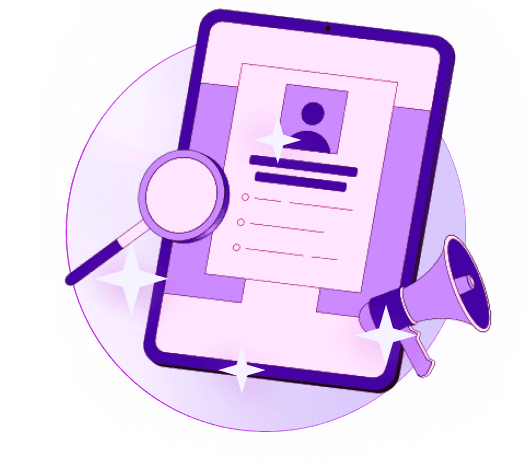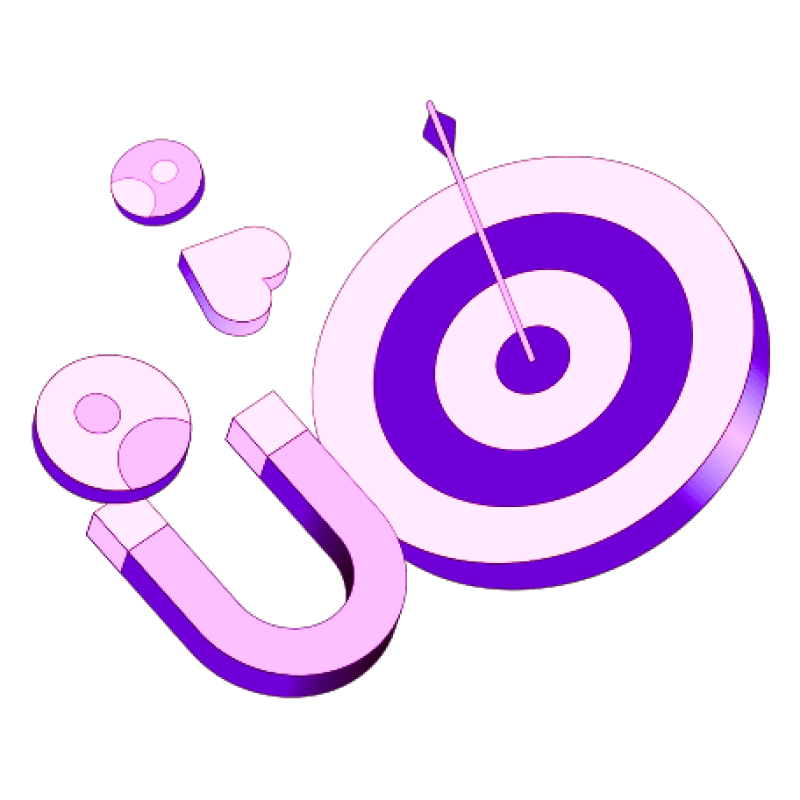Blogs
Articles

7 Ways to Automate Your Sales Processes 2026
What we normally do not know is that sales reps only actually spend a precious 34% of their time selling.
A situation arises where deals should be closed-the sales team spends the better part of its day with administrative work-what a misallocation. Good news here-A sales process with proper automation can utterly change such scenarios. Companies with automations report back heavily: 61% of them reported that they exceeded their revenue targets.
Are you willing to give your sales team time and improve your revenue? Then, let us discuss seven practical ways you can implement to put sales process automation in place and improve your team's efficiency in 2025.
What is a sales automation process?
Sales process automation fundamentally changes the way business handles its sales operations. It is basically applying software and technology to manage repetitive, tedious sales tasks. Everything from lead generation and qualification to following up with the customer is handled in a technology-based approach.
According to a study conducted by the McKinsey global Institute, sales is one of the most fertile candidates for automation. However, only one out of every four companies has automated even one sale process. In fact, sales automation functions like an aide-de-camp for sales teams, doing mundane tasks such as record updates and follow-up emails.
Today's sales automation is interview-ready with Customer Relationship Management (CRM) software, a software integrated in the central hub of customer data sorting and prioritization. Add AI into the mix, and sales automation now provides predictive analysis: it identifies trends and witnesses anomalies based on target metrics.
Why you should automate your sales process?
Implementing sales process automation delivers substantial financial returns and operational benefits. Studies show that companies using automation see their sales ROI increase by up to 20%. Moreover, sales professionals save an impressive 2 hours and 15 minutes daily by automating manual tasks.
Primarily, automation enhances operational efficiency in three key areas:
Cost reduction through minimized errors and improved data consistency
Enhanced productivity with streamlined workflows
Increased revenue through faster deal closures and improved customer engagement
Notably, 80% of top-performing sellers who exceeded 150% of their quota regularly use sales technology. This correlation between technology adoption and sales performance underscores automation's impact on revenue generation.
Specifically, automation tools excel at managing complex sales processes. For instance, Configure, Price, Quote (CPQ) systems streamline intricate product configurations and ensure accurate, tailored quotes. Subsequently, this reduces the risk of errors and accelerates the quote generation process from days to hours.
Sales automation also strengthens customer relationships through data-driven insights. Research indicates that 65% of sales professionals report better customer understanding through AI-powered automation. Furthermore, 69% confirm that automation helps personalize customer experiences.
Such financial gains extend beyond mere improvements in sales. Reports from various companies indicate that automation improves efficiencies from 10% to 15% on average. These efficiency gains represent substantial cost savings, as sales automation ai offloads repetitive tasks and therefore reduces administration overheads.
How to automate sales processes?
Automating your sales processes takes a broad-based, structured approach toward multiple touchpoints. Now let us contemplate the key areas in which automating these flows can create the most significant impact on your sales team's performance.
7 ways to automate your sales process
Prospecting
Prospecting automation helps identify and qualify potential leads efficiently. Rather than manual searching, automated tools can quickly create targeted prospect lists based on specific criteria.
Automate lead enrichment
Lead enrichment tools gather crucial information about prospects from various data sources. Primarily, these tools collect details like contact information, job titles, company size, and social media profiles. This automated process ensures your database stays current with over 100+ B2B attributes from 250+ data sources.
Use еmail тemplates
Email automation streamlines communication through pre-built workflows. During the sales process, automated email sequences can trigger based on specific prospect actions, ensuring timely and relevant communication.
Schedule calls automatically
Scheduling assistants eliminate the back-and-forth of meeting coordination. Soon after a prospect shows interest, automated scheduling tools can instantly book appointments while respecting both parties' calendars.
Negotiations and objection handling
Automated systems help track and manage common objections, enabling sales teams to respond promptly. Particularly, these tools can capture and store conversations for future reference and analysis.
Follow-ups
Follow-up automation ensures consistent engagement across multiple channels. Accordingly, the system can trigger voice and SMS follow-ups based on prospect actions, maintaining engagement without manual intervention.
Real-Time Data Analytics for Sales Insights
Real-time analytics provide immediate insights into sales performance. During prospect interactions, these tools can track metrics like buyer intent and engagement scores. This enables sales teams to make data-driven decisions and adjust strategies promptly.
Integrate your sales automation tools with Persana AI
Persana AI stands out as a powerful integration hub for sales automation tools, connecting with over 75 intent data sources to streamline your sales processes. Primarily, this platform unifies every signal across the buyer's journey, enabling sophisticated sales workflow automation through advanced triggers.
The platform seamlessly integrates with essential sales tools including:
Salesforce for comprehensive customer view
HubSpot for marketing automation
Woodpecker for email campaigns
Apollo.io for lead generation
ChatGPT and Claude for AI-powered enrichment
Undoubtedly, this extensive integration network puts your go-to-market strategy into overdrive. The platform's AI agents work round-the-clock, handling everything from lead generation to data enrichment. Altogether, this creates a unified workflow where your team can manage prospecting, personalize outreach, and streamline engagement from a single dashboard.
The platform excels in three critical areas: lead list building, AI-powered enrichment, and workflow automation. Through these capabilities, sales teams can focus on relationship building while automated processes handle routine tasks. The system continuously learns and improves as it gathers more data, ensuring increasingly accurate lead targeting and engagement strategies.
What sets Persana AI apart is its ability to capture and analyze signals throughout the buyer's journey. This signal-based automated selling approach, combined with AI-driven personalization, enables sales teams to identify and act on high-potential opportunities with remarkable speed and precision.
Best tools to automate sales workflow process?
Leading sales teams are increasingly turning to specialized automation tools to maximize their efficiency. Let's examine three powerful platforms that stand out in the market.
Persana AI

Persana AI operates as a 24/7 AI sales agent, utilizing data from 75+ sources to streamline the entire sales process. The platform excels in signal-based selling, capturing and unifying every signal across the buyer's journey. Primarily, it helps build accurate leads lists and enriches them through sophisticated AI agents.
Ready to transform your sales processes? Start your automation journey with Persana AI and unlock the full potential of your sales team.
Salesforce

Presently, Salesforce maintains its position as the #1 CRM on G2, voted top choice across SMB, mid-market, and enterprise segments. The platform's automation capabilities include lead management, sales forecasting, and performance analysis. Generally, its AI-powered features scan customer profiles to identify high-potential leads and automatically capture crucial customer data.
HubSpot Sales Hub

HubSpot Sales Hub distinguishes itself through its comprehensive sales automation toolkit. The platform enables automatic lead rotation, task creation, and prospect follow-up sequences. Certainly, its standout features include:
Personalized email sequences that adapt based on prospect engagement
Workflow automation for lead rotation and deal creation
Integration with Gmail, Google Workspace, Outlook, and Office 365
Each platform offers unique strengths in automating sales processes. While Salesforce excels in comprehensive CRM capabilities, HubSpot focuses on streamlined sales engagement, and Persana AI specializes in AI-driven prospecting and engagement. Ultimately, these tools help sales teams reduce manual tasks and focus more on building meaningful customer relationships.
Final thoughts
Sales automation stands as a game-changing solution for modern sales teams. Through proper implementation of automation tools, sales representatives can shift their focus from repetitive tasks to meaningful customer interactions and deal closures.
Research clearly shows the benefits - businesses achieve 20% higher ROI, save over 2 hours daily, and close deals faster through automated processes. These results prove that automation has become essential rather than optional for sales success in 2025.
Smart companies recognize this shift and adapt their strategies accordingly. Whether through CRM systems, AI-powered tools, or specialized platforms, automation in sales work for teams work smarter, not harder.
FAQ
How do I automate my sales process?
Use CRM, email sequences, chatbots, and sales funnels to automate lead nurturing, follow-ups, and conversions.
What is B2B sales automation?
B2B sales automation ai streamlines lead generation, follow-ups, and deal management using AI, CRMs, and workflow automation tools.
What is CRM sales automation?
CRM sales automation automates tasks like lead tracking, follow-ups, pipeline management, and reporting to improve efficiency and conversions.
How to automate your sales process?
Automate lead capture, enrichment, scoring, outreach, follow-ups, and CRM updates using AI-powered tools integrated with your sales stack.
Are there any AI tools that can help automate complex sales processes?
Yes, tools like HubSpot AI, Salesforce Einstein, Persana, Clay, and custom AI agents automate multi-step workflows, decision logic, and data-driven sales actions.
What’s the best AI solution for automating administrative sales processes?
AI CRMs and sales assistants like HubSpot AI, Salesforce Einstein, and Persana handle data entry, enrichment, reporting, scheduling, and pipeline updates automatically.

Create Your Free Persana Account Today
Join 5000+ GTM leaders who are using Persana for their outbound needs.
How Persana increases your sales results
One of the most effective ways to ensure sales cycle consistency is by using AI-driven automation. A solution like Persana, and its AI SDR - Nia, helps you streamline significant parts of your sales process, including prospecting, outreach personalization, and follow-up.



